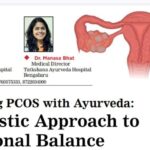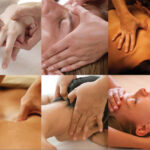“Panchakarma’’– Ayurvedic Healing
Panchakarma is not merely a cleansing therapy as it is generally understood, but it has a very wide range of action with respect to health. Panchakarma not only eliminates the toxins, but also revitalizes the tissues. That is why it is popularly known as rejuvenation therapy.
In today’s world, more and more people are falling victim for lifestyle disorders like diabetes, hypertension, obesity, stress, cardiovascular diseases, respiratory and skin allergies etc.; which are turning out to be a major cause for illness and death worldwide. These diseases are mainly caused due to deep seated metabolic toxins.
Panchakarma is an special approach of Ayurveda, especially designed 5 approach for internal purification of the body through the best possible way. Such regular purification allows the biological system to return to homeostasis and to rejuvenate the body tissues. Panchakarma has an important role as preventive, promotive and curative procedure.
Ayurveda advices to undergo specific panchakarma according to respective seasons to bring back the tridosha (vata, pitta, kapha) to normalcy , to remove the accumulated toxins from the body, to relax the mind and to activate the metabolism.
‘Pancha’ means Five. ‘Karma’ means Therapy. A combination of five different therapies is collectively called as Panchakarma. They are: Vamana, Virechana, Asthapana Basti, Anuvasana Basti, Nasya (according to Acharya Charaka). And Vamana, Virechana, Basti, Nasya, Raktamokshana (according to Acharya Sushrutha).
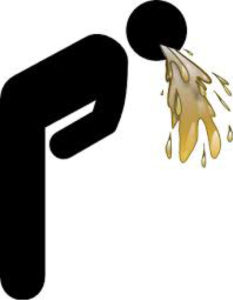

Otherwise called as therapeutic emesis. It is a procedure to eliminate metabolic toxins and excess kapha dosha from the oral route by inducing vomiting. In healthy individuals, vamana karma is effective if done in vasantha ruthu (soon after winter ends, in the month of January-February). Physiologically kapha dosha gets excessively accumulated in vasantha ruthu. And this causes the diseases related to kapha in those individuals who are prone to it. Hence, in order to prevent the kaphaja disorders and to enhance the immunity, vamana karma is beneficial. And in patients already suffering from such diseases related to kapha, vamana karma can be done during any season depending upon the condition. Vamana karma is usually administered in conditions like thyroid problems, overweight, upper respiratory tract infections, skin problems, food poisoning etc, depending upon the problem and the physician’s decision. It is advised to follow the physician’s orders and pathya ahara during treatment. Usual time duration for vamana karma including pathya kaala is 7 to 14 days.
Virechana karma :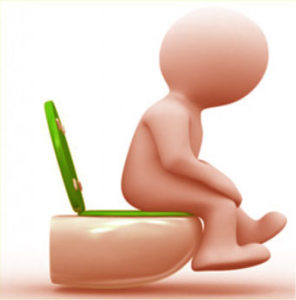

Otherwise called as therapeutic purgation. It is a procedure to eliminate the metabolic toxins and excess pitta dosha from the anal route by inducing diarrhea. In healthy individuals, virechana karma is effective if done in sharad ruthu (soon after rainy season ends, in the month of October-December). Physiologically pitta dosha gets excessively accumulated in sharad ruthu. And this causes the disease related to pitta in those individuals who are prone to it. Hence, in order to prevent the pittaja disorders and to activate metabolism, virechana karma is essential. And in patients already suffering from such diseases related to pitta, virechana karma can be done during any season depending upon the condition. Virechana karma is usually indicated in problems like obesity, diabetes, hypertension, skin problems, gynecological problems like ovarian cysts, male and female infertility, rheumatoid arthritis etc. It is advised to follow the physician’s orders and pathya ahara during treatment. Usual duration of virechana karma including including the pathya kaala is 10 to 18 days.
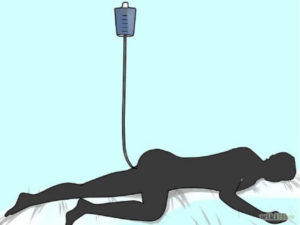

Basti karma:
Otherwise called as therapeutic enema. Here, a unique combination of different medicines suitable to that particular disease will be administered through rectal route. It is the most important and most effective therapy in Panchakarma. It can be administered in almost all the diseases involving any of the dosha (vata, pitta, kapha). But mainly it is administered to control vata dosha and thereby curing the disease. In healthy individuals it is advised to administer basti in varsha/pravrut ruthu (rainy season). Based on the duration of basti chikitsa, it can be classified as yoga basti (8 days), kaala basti (15 days) and karma basti (30 days). Basti chikitsa is specially indicated in problems like sciatica (intervertebral disc prolapse), paralysis, arthritis, motor neuron diseases, parkinson’s disease and other neurological and musculo skeletal diseases.
Nasya karma: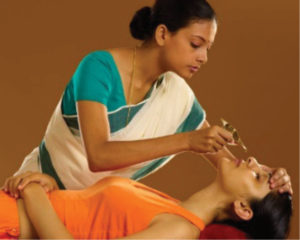

Therapeutic administration of medicated oil, ghee, powder (depending on the condition) through the nasal route is called as nasya karma. This is a specialized treatment for problems related to neck and above regions like migraine, sinusitis, cervical spondylosis, allergic rhinitis, facial paralysis, hairloss etc. A unique feature of nasya karma is that it can be taken daily as a part of dinacharya advised in Ayurveda.
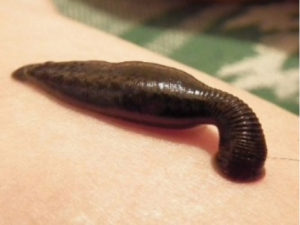

Raktamokshana :
Otherwise called as therapeutic blood letting. Usually advised in diseases mainly involving rakta dhatu (haematological problems). Example: Acne, Eczema, Psoriasis, Sciatica, hypertension etc. Usually done using healthy leeches or surgical needles. This requires repeated sittings along with diet management. Raktamokshana helps in letting out impure blood and production of fresh blood. Also helps to prevent cardio vascular diseases in the long run.
Regular practice of panchakarma according to respective seasons will help in preventing almost all diseases, restores energy, enhances the immunity, rejuvenates the entire physiological system of the body and activates the metabolism by doing bio purification. Hence, the authentic Indian system of medicine Ayurveda advises mankind to practice dinacharya (daily regimen), ruthucharya (seasonal regimen), sadvruttha (good conduct) along with healthy food and panchakarma practice.
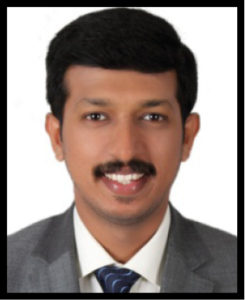

Dr. Nitin V.
Panchakarma Specialist, Dept. of Panchakarma
S.D.M Institute of Ayurveda and Hospital, Bengaluru
dr.nitin.v.89@gmail.com Mob: +91 99018 65656



